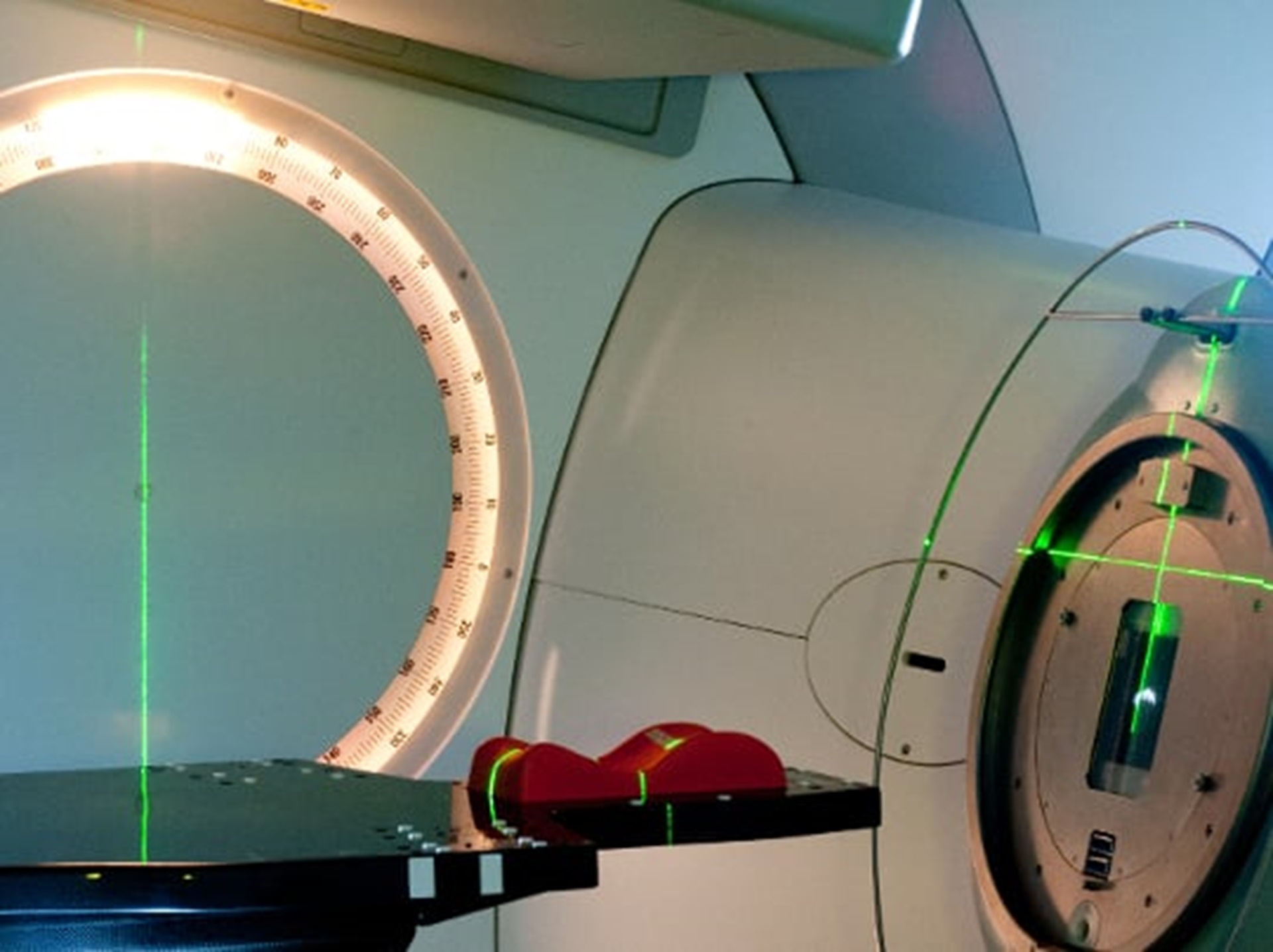Giving fewer but higher doses of radiotherapy, is as effective at treating prostate cancer as giving lower doses for a longer period, according to new research presented at the 2015 European Cancer Congress today.
The results could mean men need fewer trips to hospital – over four weeks rather than seven and a half – without reducing the quality and impact of their prostate cancer treatment.
The Cancer Research UK funded CHHiP trial – the largest randomised treatment trial ever undertaken in localised prostate cancer led by The Institute of Cancer Research, London, and The Royal Marsden NHS Foundation Trust – gave 3,216 men with prostate cancer from across the UK different schedules of radiotherapy.
Some men received standard radiotherapy of 74 Gy over 37 days (two Gy a day) while others were given either 60 Gy delivered over 20 days or 57 Gy over 19 days (three Gy a day).
The researchers then followed these patients for five years and, overall, found that giving patients 60 Gy over 20 days was as effective as the standard treatment – in terms of both controlling the disease and for long-term side effects.
Some short-term side effects of the higher daily radiotherapy doses during and immediately after radiotherapy were higher than for standard radiotherapy, but these – including bowel and bladder problems - were not long lasting. There was no difference in the side effects after six months or during the next five years.
Lead investigator Professor David Dearnaley, Professor of Uro-Oncology at the ICR and Consultant at The Royal Marsden, said: “These data are encouraging news for men. Excellent control rates and a low side effect profile have been seen across the trial. Giving patients larger doses of radiotherapy for a shorter time will mean fewer hospital trips and less radiotherapy needed overall. These findings are the result of many years of research and should help to further refine treatment. It appears to be safe and effective and we recommend it as a new standard of care. The study has facilitated the widespread introduction of high quality modern radiotherapy and these advanced techniques are necessary to deliver short high dose treatments safely.”
Dr Emma Hall, Deputy Director of the Cancer Research UK-funded Clinical Trials and Statistics Unit at the ICR, which co-ordinated the study, said: “The technique used to give the radiotherapy has led to low levels of side effects even with the higher daily dose. We have also shown that the 20 day schedule is at least as good at controlling disease as the current 37 day schedule. We estimate that over 150,000 trips to hospital could be saved per year”.
Around 41,700 men are diagnosed with prostate cancer every year in the UK. More than 10,800 men die from the disease annually. In the UK, radiotherapy is the most commonly used treatment to cure localised prostate cancer.
Professor Malcolm Mason, Cancer Research UK’s prostate cancer expert, said: "These results are great news for men. From a logistical and patient convenience point of view, being able to treat patients over a shorter period of time has been a goal for specialists, but the question has always been whether it was safe to do so. This study shows that it is safe and effective, and there should be no reason why this cannot be implemented immediately – it is saving the NHS resources.
"But there are still questions we need answers to. It’s not impossible that fewer, but bigger fractions of radiotherapy might be still better at controlling the disease, but this would need more data from large clinical trials to answer. We look forward to seeing more research – perhaps by combining this and similar studies. It’s also valuable to see the impact of the shorter treatment on side effects. Reassuringly, these are no different to the older, standard treatment.
“Treating patients in this way means that special attention should be paid to the very best radiotherapy planning, including the need for the most sophisticated equipment and looking at whether newer techniques like intensity modulated radiotherapy – IMRT – might be especially useful in this setting."